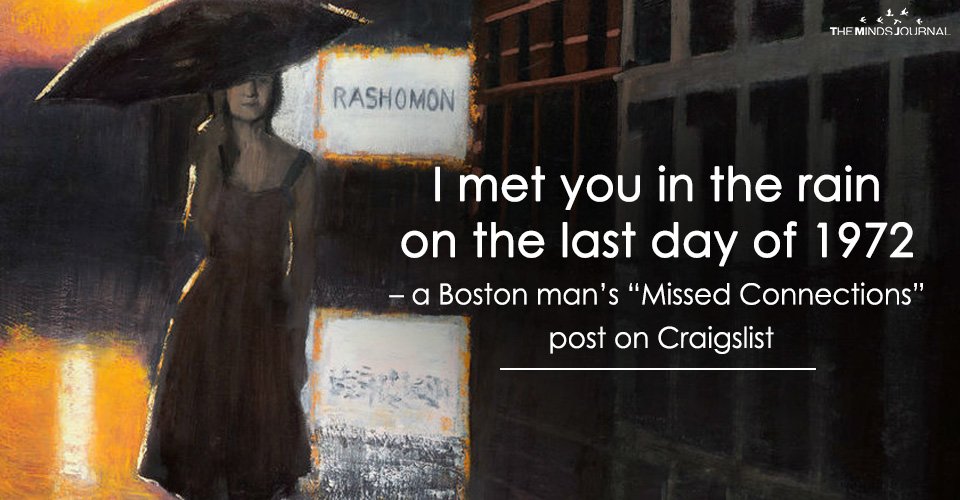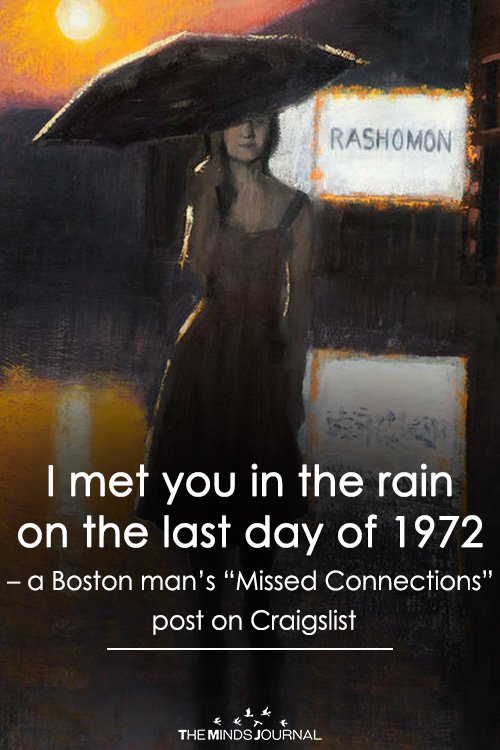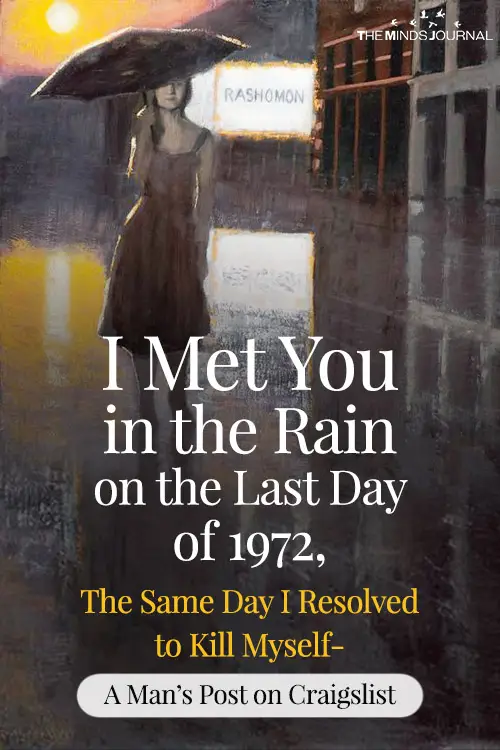For all the sensitive Souls, love to you all. Being sensitive is a boon, remember that.<3 <3
Author:
-

-

I know Humanity has it’s flaws, but I ‘ll still believe in it
-

“If someone is stupid enough to walk away from you, be smart enough to let them go.”
Be stupid enough or to be smart enough ?
-

Treat everything, like it is the last time. You never know, if there actually lies a future ahead.
-

We are often asked and motivated to enhance our strengths, while encouraged to push aside our weaknesses. Educating ourselves on our flaws is as intriguing as knowing all our positive qualities. Even the rock of the group Taurus, the feeler Cancer and the social butterfly Libra among the other signs have flaws they must work on.
Read on to discover how to become a better you.
1. Aries
You’re the courageous type, and doing things well – quickly and with flair – comes naturally to you. Think about cultivating sensitivity, as well as practicality that will allow you to figure out in advance what works and what doesn’t. If you succeed, your inspirational approach will pack an even greater punch!
2. Taurus
You’re steady and sensible, a rock of stability. But rather than acting the part of a deeply rooted oak tree, try being a reed that bends in the breeze and adapts to others. Find the faith to follow your hunches, rather than double-checking all the practical angles. If you listen to your heart, your strength will become more effective.
3. Gemini
You are a thinker, talker, and mover. So, try standing still for a change! You won’t die of boredom. Dive deeply into your current projects rather than scattering to all four winds. Feel your way into situations, instead of standing back and thinking. You’ll never allow yourself to turn into a stick in the mud, but you’ll find that your efforts will pay off handsomely.
4. Cancer
You’re sensitive, creative and hopelessly active. For one day try shutting your heart. Listen to your head. Develop detachment so you can shut out distractions. If you learn to be more resilient and secure, your amazing ability to sniff out possibilities will be that much more powerful!
5. Leo
You’re sunny, outgoing and naturally optimistic. What you’re not, however, is realistic or inward-looking. Plan before you jump into action. Take quality time on your own and enjoy it. Everyone else thinks you’re wonderful, but you need to convince yourself of this – without an audience. If you do, you’ll sparkle ever more brightly.
6. Virgo
You’re practical, helpful and not a little fussy. But you need to find your hidden fire, which means cultivating optimism, taking the odd risk, and following your dreams rather than your duties on occasion. Be bolder and more proactive, and flamboyant rather than understated. Your new vitality will sweep you on to victory!
7. Libra
You’re a social and a charming talker – a natural mediator. Now go ahead and toss that tact out the window and focus on yourself for a bit. Forget about gaining approval and being respected; instead, get down and dirty. There are nuggets of gold in the gutter that are yours for the taking.
8. Scorpio
You live naturally with passionate intensity, and you require a depth of feeling like few others. Because of this, standing back to think will take some effort on your part, and so will practicing the art of letting go without harboring bitterness. You’ll never be superficial, but you’ll find that living on the surface adds a missing dimension to your existence.
9. Sagittarius
You’re excitable, hopeful, restless and always looking to expand the potential of whatever you’re involved in. Having to be practical feels as if it’s taking a bite out of your dream. But if you put a limit on your inspirations and box them in, you’ll find that you’ll consolidate your ambitions. Think less instead of more.
10. Capricorn
You’re earthy, sensible, ambitious. You need to cultivate your sense of vision, nurture your dreams and develop your faith. Try harder to be optimistic instead of pessimistic, fiery instead of leaden, and reckless instead of cautious. Inject some spontaneous enjoyment into your life and you’ll never look back.
11. Aquarius
You’re cool, detached, firm and independent. Your first goal should be to find some fire to breathe warmth and vitality into your ideas. Don’t be scared of your feelings, since they’ll be your main portal to greater fulfillment. Get out of your head and down into your body, heart, and guts. Live multi-dimensionally.
12. Pisces
You’re a creature of the cosmos and the oceans, floating and swimming your way through life. Dryland is your least comfortable realm, so learn to become rooted in reality by bringing your visions and dreams down to earth. They may be less perfect, but they’ll be more likely to happen. Take your wobbly self-confidence and give it a shot of adrenalin! Then, nothing will stop you!
Related Video: The Fakest and the Realest People of the Zodiac Sign
You may also like :
- Stress Triggers and Anxiety by each Zodiac Sign and how to deal with it
- Toxic Friends according to Each Zodiac Signs
- What is your Biggest need in a Relationship According to your Zodiac Sign
- Intimacy Issues and Facts According to each Zodiac Sign
- How each Zodiac Sign Approaches Love

-

‘I trusted her. I gave her everything. And still, she left.’
‘And that’s the risk we take. It’s not her fault, child, that’s life, that’s love.
They call it falling in love because sometimes you’re caught,
and sometimes you’re not.’
– Beau Taplin -

Did you just not like that part, which was half ‘You’ ?
-

It’s good to look at the Past,
Just do’nt stare.
-

We meet a lot of people in our lifetime. Sometimes we experience strange and short encounters with strangers that leave us thinking about them or wanting to meet them again, miss connection with them or never see them ever in life. There is always a reason behind everything that happens in life whether sweet or bitter. Thanks to missed connections on craigslist. You can write to your heart’s content here and let the world know your feelings. Here’s is an intriguing story of a Boston man and what his encounter with a stranger in the rain on the last day of 1972 turned out to be.
Note: Craigslist is known for many things, but perhaps the most famous is its Missed Connections section. Amorous city dwellers who couldn’t work up the nerve to say something to that cute stranger they were eye-flirting with on the train can post a message detailing the time and place, hoping said stranger will do the same.
The messages are generally short and sweet, like, “I was the one in the blue headphones, you were the one in the pink skirt. We both got off at Union Square and I wish I ran after you…” But this post from the Boston Missed Connections board is different, and it’s gone viral. So what’s all the fuss about, and why is Wired saying this might be “the first Craigslist ad to win a Pulitzer”? Read it for yourself: I met you in the rain on the last day of 1972, the same day I resolved to kill myself. One week prior, at the behest of Richard Nixon and Henry Kissinger, I’d flown four B-52 sorties over Hanoi. I dropped 48 bombs. How many homes I destroyed, how many lives I ended, I’ll never know. But in the eyes of my superiors, I had served
This is a Boston man’s “Missed Connections” post on Craigslist about a woman he met on New Year’s Eve in 1972. It was too beautiful not to share, and a great reminder that you never know why the people you meet are there…I met you in the rain on the last day of 1972, the same day I resolved to kill myself.
One week prior, at the behest of Richard Nixon and Henry Kissinger, I’d flown four B-52 sorties over Hanoi. I dropped forty-eight bombs. How many homes I destroyed, how many lives I ended, I’ll never know. But in the eyes of my superiors, I had served my country honorably, and I was thusly discharged with such distinction.
And so on the morning of that New Year’s Eve, I found myself in a barren studio apartment on Beacon and Hereford with a fifth of Tennessee rye and the pang of shame permeating the recesses of my soul. When the bottle was empty, I made for the door and vowed, upon returning, that I would retrieve the Smith & Wesson Model 15 from the closet and give myself the discharge I deserved.
I walked for hours. I looped around the Fenway before snaking back past Symphony Hall and up to Trinity Church. Then I roamed through the Common, scaled the hill with its golden dome, and meandered into that charming labyrinth divided by Hanover Street. By the time I reached the waterfront, a charcoal sky had opened and a drizzle became a shower. That shower soon gave way to a deluge. While the other pedestrians darted for awnings and lobbies, I trudged into the rain. I suppose I thought, or rather hoped, that it might wash away the patina of guilt that had coagulated around my heart. It didn’t, of course, so I started back to the apartment.
And then I saw you.
You’d taken shelter under the balcony of the Old State House. You were wearing a teal ball gown, which appeared to me both regal and ridiculous. Your brown hair was matted to the right side of your face, and a galaxy of freckles dusted your shoulders. I’d never seen anything so beautiful.
When I joined you under the balcony, you looked at me with your big green eyes, and I could tell that you’d been crying. I asked if you were okay. You said you’d been better. I asked if you’d like to have a cup of coffee. You said only if I would join you. Before I could smile, you snatched my hand and led me on a dash through Downtown Crossing and into Neisner’s.
We sat at the counter of that five and dime and talked like old friends. We laughed as easily as we lamented, and you confessed over pecan pie that you were engaged to a man you didn’t love, a banker from some line of Boston nobility. A Cabot, or maybe a Chaffee. Either way, his parents were hosting a soirée to ring in the New Year, hence the dress.
For my part, I shared more of myself than I could have imagined possible at that time. I didn’t mention Vietnam, but I got the sense that you could see there was a war waging inside me. Still, your eyes offered no pity, and I loved you for it.
After an hour or so, I excused myself to use the restroom. I remember consulting my reflection in the mirror. Wondering if I should kiss you if I should tell you what I’d done from the cockpit of that bomber a week before if I should return to the Smith & Wesson that waited for me. I decided, ultimately, that I was unworthy of the resuscitation this stranger in the teal ball gown had given me, and to turn my back on such sweet serendipity would be the real disgrace.
On the way back to the counter, my heart thumped in my chest like an angry judge’s gavel, and a future—our future—flickered in my mind. But when I reached the stools, you were gone. No phone number. No note. Nothing.
As strangely as our union had begun, so too had it ended. I was devastated. I went back to Neisner’s every day for a year, but I never saw you again. Ironically, the torture of your abandonment seemed to swallow my self-loathing, and the prospect of suicide was suddenly less appealing than the prospect of discovering what had happened in that restaurant. The truth is I never really stopped wondering.
Do you know how depression leads to suicide? Read Robin Williams’ Wife Unveils the True Reason Behind His Suicide
I’m an old man now, and only recently did I recount this story to someone for the first time, a friend from the VFW. He suggested I look for you on Facebook. I told him I didn’t know anything about Facebook, and all I knew about you was your first name and that you had lived in Boston once. And even if by some miracle I happened upon your profile, I’m not sure I would recognize you. Time is cruel that way.
This same friend has a particularly sentimental daughter. She’s the one who led me here to Craigslist and these Missed Connections. But as I cast this virtual coin into the wishing well of the cosmos, it occurs to me, after a million what-ifs and a lifetime of lost sleep, that our connection wasn’t missed at all.
You see, in these intervening forty-two years, I’ve lived a good life. I’ve loved a good woman. I’ve raised a good man. I’ve seen the world. And I’ve forgiven myself. And you were the source of all of it. You breathed your spirit into my lungs one rainy afternoon, and you can’t possibly imagine my gratitude.
Want to know how practicing gratitude can make you happy? Read 5 Ways Gratitude Can Change Your Life
I have hard days, too. My wife passed four years ago. My son, the year after. I cry a lot. Sometimes from loneliness, sometimes I don’t know why. Sometimes I can still smell the smoke over Hanoi. And then, a few dozen times a year, I’ll receive a gift. The sky will glower, and the clouds will hide the sun, and the rain will begin to fall. And I’ll remember.
So wherever you’ve been, wherever you are, and wherever you’re going, know this: you’re with me still.
Comment and let us know how did you like “I Met You in the Rain on the Last Day of 1972, The Same Day I Resolved to Kill Myself”.
I Met You in the Rain on the Last Day of 1972, The Same Day I Resolved to Kill Myself -a Boston man’s “Missed Connections” post on Craigslist I Met You in the Rain on the Last Day of 1972, The Same Day I Resolved to Kill Myself -a Boston man’s “Missed Connections” post on Craigslist
























